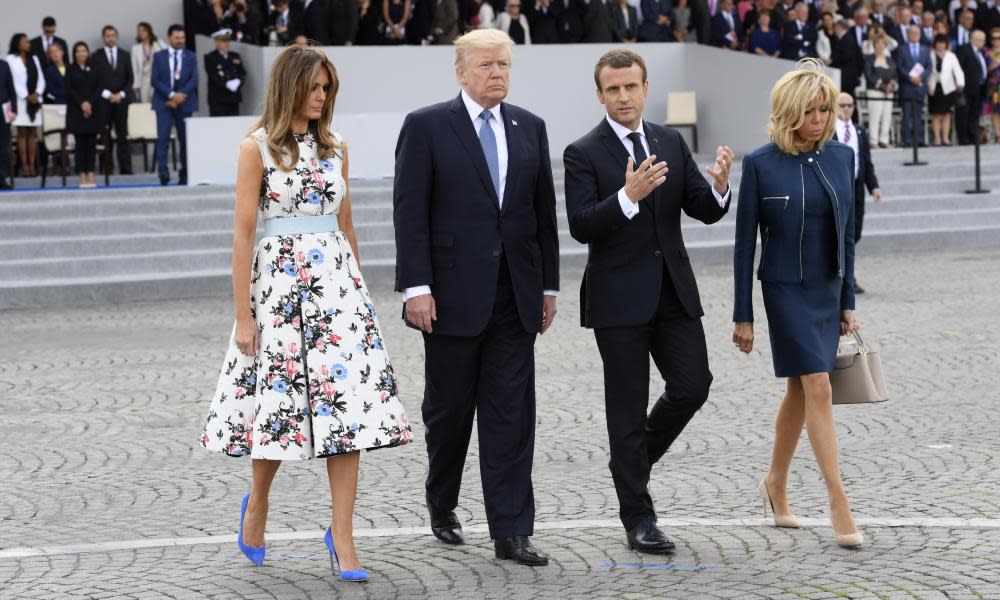Trump visit to Paris ends without large demonstrations

The US president, Donald Trump, left Paris smiling on Friday after a 24-hour visit in which he was not troubled by the large demonstrations he had feared if he came to London.
Although some crowds did gather behind riot police lines holding banners with messages such as “Save the planet, resist Trump”, they were kept far from any of the locations Trump visited.
It was not that Trump’s visit went without question. The left-leaning daily Libération ran the headline: “Pariah in Paris”.
The French environment minister, Nicolas Hulot, when asked if he would shake Trump’s hand, balked and suggested it was enough of a concession to simply share a platform with him at the military parade.
But even the daily Libération could not make its mind up about whether Trump was welcome. It published two separate editorials, one saying it was a good idea to attempt to bring Trump round to French ideas; another regretting that the red carpet was rolled out in such a fawning way.
For the British prime minister, Theresa May, a Trump visit had been seen as so potentially toxic that plans had been put on hold. But for the newly elected French president, Emmanuel Macron, who is still in a post-election honeymoon period, it was generally seen as a clever move – a way for an EU leader to seize an opportunity to win over an isolated Trump and bring him “back into the circle”, while staying “frank” about their differences.
The lack of widespread anti-Trump protests in France – despite the majority of French people having a negative view of the US leader – was linked to the political and historical context.
The invitation for a US leader to attend the Bastille Day celebrations had been in the pipeline long before either Macron or Trump were elected, because 2017 is the 100th anniversary of the entry of US troops into the first world war.
Other divisive leaders – including in 2008, Syria’s Bashar al-Assad – have attended the same parade as guests of honour. The shadow of last year’s Bastille day Nice attack, which killed 86 and injured 450, hung over celebrations, dampening the mood.
Above all, France is exhausted from a heavy election cycle – emerging from a year of campaigns including party primaries, a presidential election and parliamentary elections, in which France’s far-right had become a focus.
“One reason for a lack of protests in France is that we just came out of a long presidential campaign in which Trump had an equivalent: Marine Le Pen,” said Laurence Nardon, head of the US programme the French institute of international relations (IFRI).
“Le Pen made it to the second round but then lost the election with a very wide margin after a terrible performance in a TV debate. She’s very chastised by that... So it’s as if, having defeated Le Pen, Trump isn’t so much of a consideration any more.”
Philippe Roger, author of the American Enemy, a history of French anti-Americanism, said Trump’s visit was likely to be seen as “defendable” from a tactical point of view. He said: “It will irritate some people in France. But I think they’ll take it as a diplomatic coup that’s worth trying.”

 Yahoo News
Yahoo News 
